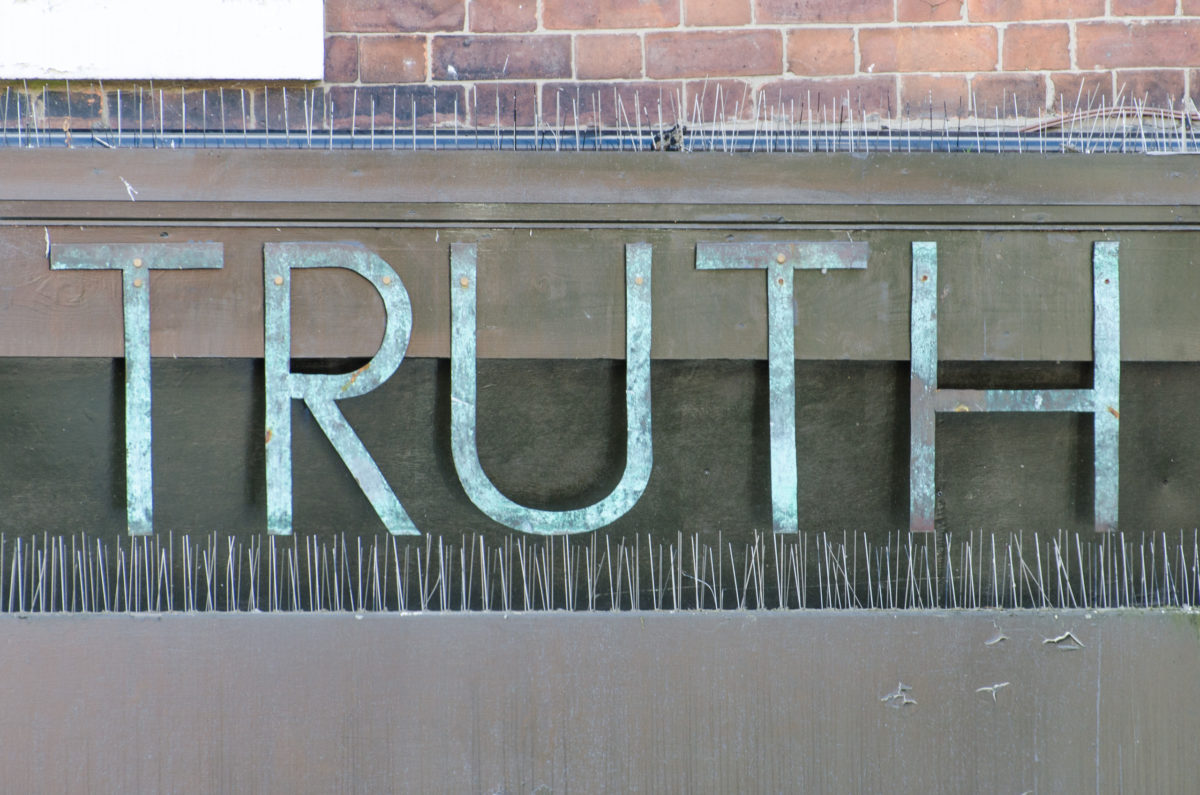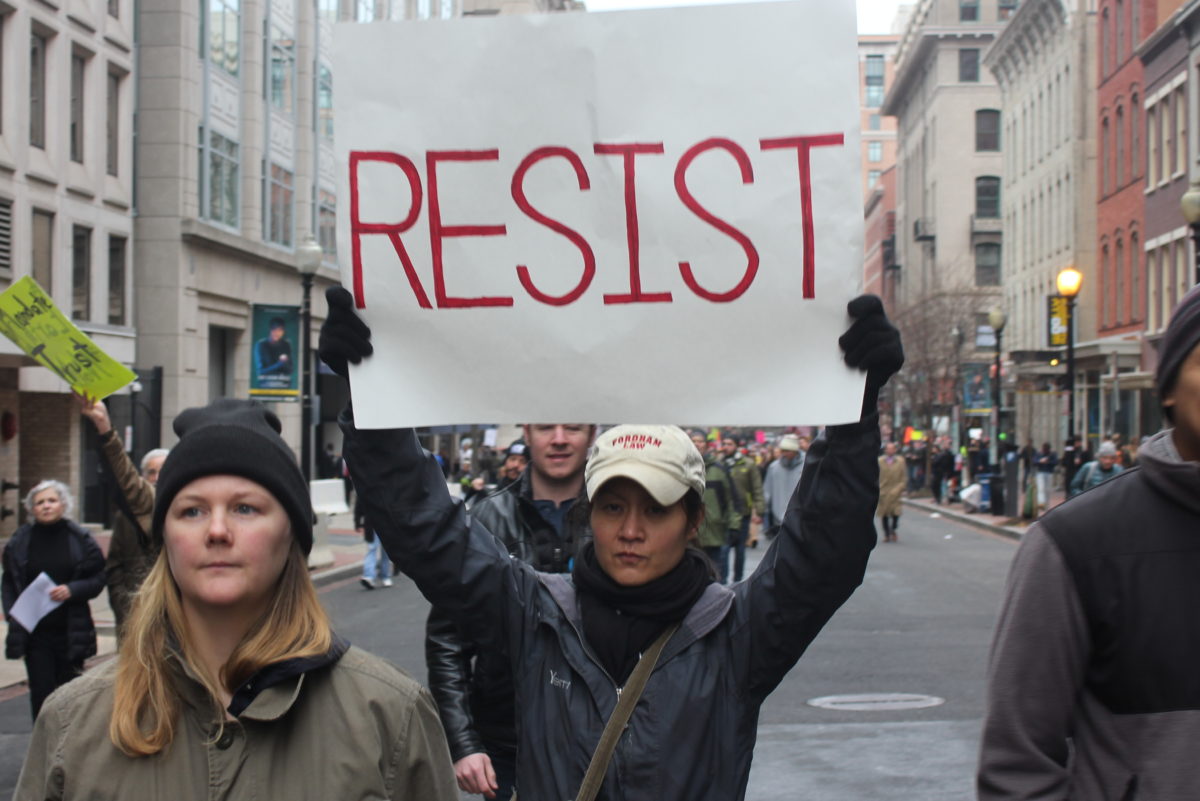Imagine that you are talking with a friend about some controversial topic of the day—for example, immigration or the conflict in the Middle East. After you make a particularly incisive point, your friend claims that you aren’t intelligent enough to know what you’re talking about. Because of your race.
How would you react to such a charge? Doubtless most readers would take offense and question its basis. While few today will try to dismiss your views on the grounds of your race, there are many who will do so by appealing to other accidents of your birth. They even have a catchphrase.
That catchphrase is “check your privilege.”
In April, Princeton freshman Tal Fortgang set the internet ablaze with a provocative missive in a student publication (later reprinted in Time) challenging that catchphrase. Reportedly, Fortgang had been urged to “check his privilege” after defending his conservative political views on welfare and the national debt. In his piece, he recounted the “privileges” of his Polish Jewish ancestors who were persecuted by the Nazis and Soviets. He implied, of course, that they weren’t actually privileged: because his family had to overcome such obstacles, he suggested that his views should be taken more seriously.
In the controversy that ensued, critics of Fortgang argued that he failed to understand the import of the “check your privilege” mantra. Kristen Howerton, writing in The Huffington Post, claims that the phrase neither asks people to apologize for their privileges, nor dismisses those people’s opinions on the grounds of their privilege. Instead, she says “it’s a way of reminding someone that they may not know or understand what they are talking about.” Others critics of Fortgang have echoed this point.
Perhaps the “privilege checkers” don’t want the privileged to apologize for their privilege or surrender their opinions unilaterally. Even so, their challenge is not simply that we remember the trivial and obvious fact that some people are more privileged than others. When they ask us to check our privilege, they mean it in the sense that we should check our privilege at the door when we engage in a policy debate. What would this mean?
Howerton says we fail to check our privilege when we are “insensitive to the life experiences of others.” She lists a series of opinions that she seems to think one could not hold without being insensitive in this way: for example, one is being insensitive if one thinks the black community overreacted to the Trayvon Martin story, or that gays should stop complaining about marriage rights, or that handicapped parking spaces are unfair. Etc.
Sometimes we can make mistakes by failing to empathize with the position of another. If a teacher prepares an exam that would be easy for him but impossible for his students, it may be because the teacher unjustifiably assumes that the students know more than they possibly could given their education so far. Or if students get angry at a teacher for not returning graded papers right away, it may be because the students unjustifiably assume that the teacher has plenty of free time.
A failure to empathize can also lead to disagreement in politics—but it is not the only reason. Perhaps some people oppose welfare programs because they think the life of indigent people would be easy in the absence of such programs. But many oppose these programs not because they foolishly think that the indigent have it easy, but because they don’t think that the indigent deserve to live an easier life at the expense of others. Whether you agree with that or not, it’s not a belief that clearly results from a failure to empathize. It’s a philosophical belief informed by one’s deepest convictions.
Are our philosophical beliefs nothing more than products of our privilege? Many obsessed with privilege-checking seem to assume that they are. Even esthetic opinions cannot escape the reach of their criticism. Even before the Fortgang controversy, a feminist journalist who said she admired a popular television show even though its cast lacked racial diversity was asked to check her privilege. So was a politician who defended the journalist by saying that griping about privilege never helped women to advance. So were the pundits who agreed with the politician. And so on.
The idea that privilege blinds us to reality, that our philosophical ideas are rationalizations for our social status, is not a new one. It goes back at least as far as the writings of a renowned 19th century German political theorist. He famously argued that ideas are byproducts of our class interests. So a defender of capitalism may be convinced that his system maximizes freedom and prosperity, but his position can be dismissed as mere “bourgeois ideology.” The current obsession with privilege-checking simply generalizes from the critique of economic privilege to critique the privileges of race, gender, and sexual orientation, along with all the other categories of modern identity politics.
But if we shouldn’t attribute an intelligence deficit to members of a disadvantaged race, why should we attribute an objectivity deficit to the advantaged members of society? It is controversial enough to argue that there is a genetic basis for the speed and scope of one’s intellectual processing. To maintain that genetic or environmental factors (especially advantageous ones) create inevitable biases in the quality and validity of one’s philosophical thinking should raise the reddest of red flags.
If I believe only what my upper-middle class parents have raised me to believe—say, to reject the welfare state—then my view results from an appeal to irrelevant authority, not from an appeal to logic. But I can be critical of what my parents tell me, and evaluate it as logical or illogical—even when those beliefs support the right to enjoy my social status. I can decide that my parents’ arguments against the welfare state don’t make sense, and reject their views. But if I can do that, why can’t I also decide that I don’t agree with what my parents say just because they say it, but that I agree with it for reasons of my own? As long as we are capable of independently evaluating the logic of a position, we are capable of objectivity—regardless of how the position complements my social position.
But if I can’t evaluate an argument for or against some political position simply on the basis of its logic and free from prejudice, I lack the ability to be objective. Then I don’t have real intellectual autonomy, which is the essence of human free will. But privilege-checkers think that some political or cultural beliefs result from bias simply because of their content, simply because they support the rights of some members of society who happen to be privileged. This entails a repudiation of human intellectual autonomy and therefore, of free will.
But we are intellectually autonomous and we can be objective. If we couldn’t, we wouldn’t be able to identify any belief as a prejudice. But even privilege-checkers think we can do this, as they are intent on pointing out ways of avoiding prejudice. Unless they are somehow very special and the only ones who can avoid prejudice, all human beings can form objective, unprejudiced beliefs.
If we really want to combat bigotry and prejudice, we need to follow the advice of another, somewhat underappreciated philosopher, and check our premises, not our privilege. That is, we need to identify the major starting points of our arguments and see if they are supported by the facts and by an integrated view of reality.
We began to overcome racism when we checked the premise that African slaves were not rational human beings. We began to overcome sexism when we checked the premise that women were ruled by emotions not rationality. Before these doctrines were rejected by society at large, these premises were usually checked first by the intellectual leaders of the day—who happened to be straight white men in positions of privilege. If they could break free from prejudice through science and logic, we can as well.
Interestingly, we should reject racism and sexism because their most basic premises deny human intellectual autonomy. Both see individual human beings as slaves of their genetics and environment. The privilege checkers who say we cannot help but see the world through the filter of our privilege share this premise. It is the most crucial premise to check—and reject. Just as we are free to reject our parents’ beliefs, we are free to reject the philosophers who reject the existence of that freedom—and of the many catch phrases they have spawned.
If you found the ideas in this article provocative, you can learn more about them at The Undercurrent’s Student Conference, this coming fall. Students interested in attending can apply here.
This article was funded by a donor to The Undercurrent who chose the “Personalized article” level of support. If you would like to see TU produce more articles like this, please visit our donation page.
Creative commons-licensed image from Flickr user no lurvin here.





